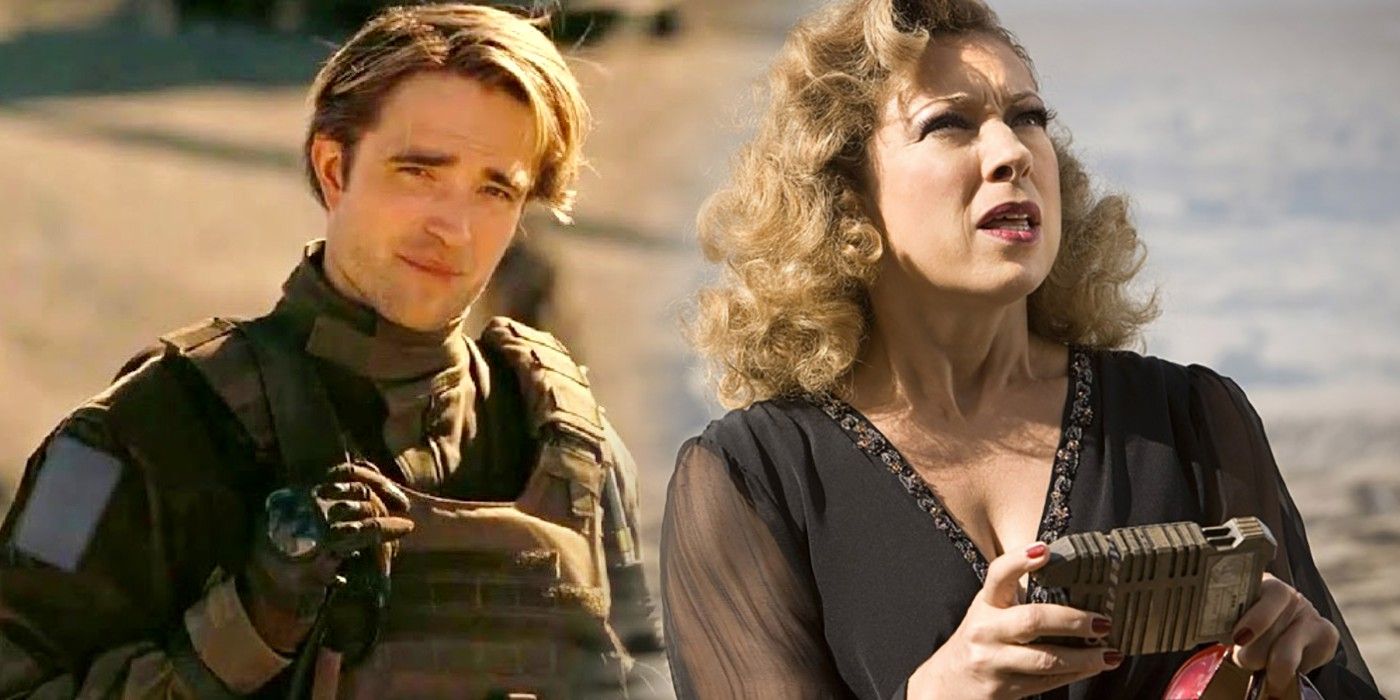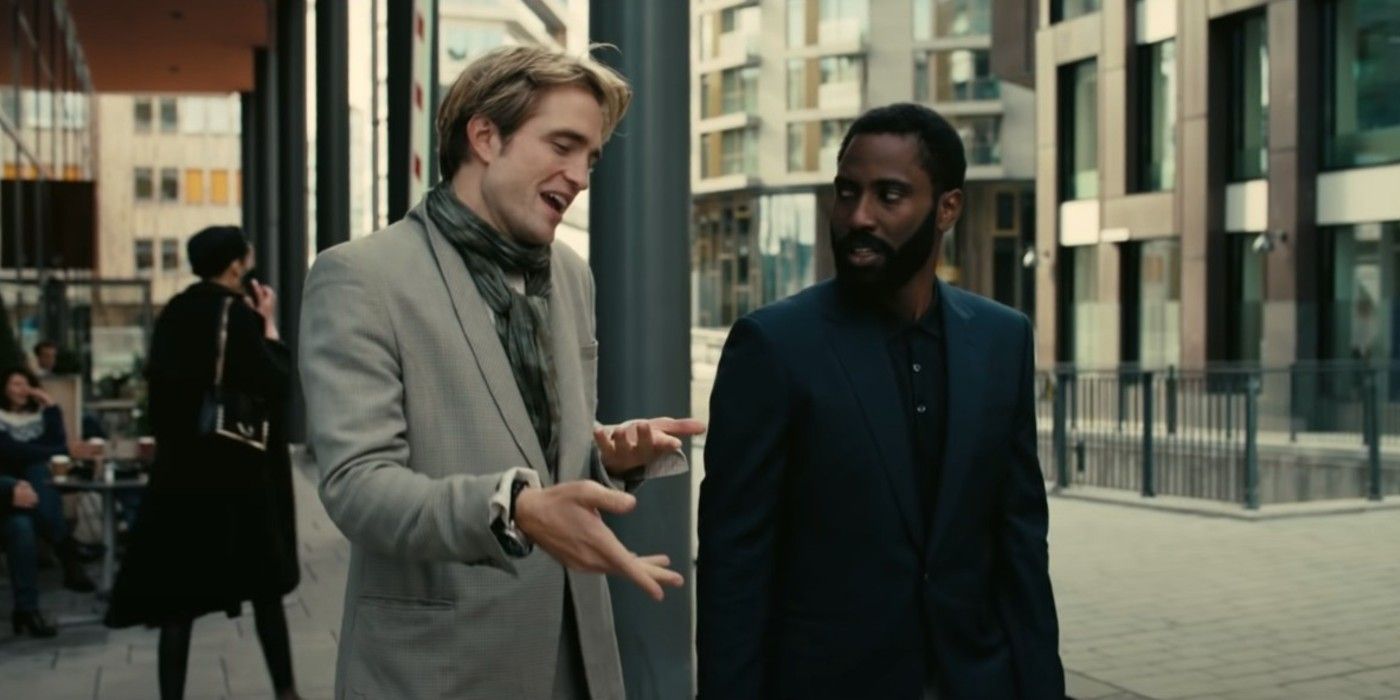Doctor Who and Tenet both deal in time travel, but the adventurer from Gallifrey did one of Nolan's boldest stories much better. Tenet is a quantum minefield of a movie, deeply complicated in its premise, and even grander in its ambition. With Kenneth Branagh's villainous Sator seeking to destroy the world (what else?), The Protagonist (John David Washington) and Neil (Robert Pattinson) must stop the deluded baddie before it's too late. The heroes' relationship, however, isn't quite as conventional. As far as The Protagonist is concerned, this is the first time he and Neil have worked together, meeting unexpectedly during the mission. From Neil's perspective, he and Washington are firm friends, and have been for many years.
Tenet's time travel is all about inversion - reversing the entropy of a person or object so it moves backwards. When The Protagonist first meets Neil, he's heading forward through time as nature intended. Neil, on the other hand, was inverted in the future to rendezvous with a younger Protagonist, un-inverting himself to accompany Washington's character through events that, from his perspective, have already happened. Effectively, Neil knows everything about The Protagonist, but The Protagonist knows nothing about Neil. In the future, the boot will be on the other foot, with a younger Neil meeting a Protagonist who already knows plenty about him.
This is a concept Doctor Who fans will be very familiar with. In "Silence in the Library," David Tennant's Tenth Doctor meets River Song - a mysterious woman with (very) intimate knowledge of the Gallifreyan, despite The Doctor being adamant that he's never met her. Much like Tenet's Protagonist and Neil, The Doctor and River Song encounter each other at opposite ends of their respective journeys. River may not move in straight lines like Neil (she darts around from the 1940s to the far future) but the effect is the same - the more The Doctor gets to know River, the less familiar she is with him, and vice versa. Also like The Protagonist, The Doctor knows how River will die, since her end, from his perspective, was their beginning.
But in terms of which executes the 'palindrome relationship' narrative better, Doctor Who offers much more nuance, detail and emotion, seeing the idea through to its conclusion. With River Song encountering three different incarnations of the Time Lord, Doctor Who explores the pain and drama that comes from "inverted" relationships. River desperately wants to warn The Doctor of ominous events to come, while The Doctor desperately wants to stop River's death, but both must refrain from interfering, no matter how much they love each other. River must also play along with key moments, such as The Doctor's death, despite knowing the eventual outcome, and withholds key information (like the identities of her birth parents) to avoid creating a paradox or changing history for the worse. Doctor Who makes River Song an exciting and unpredictable addition to any given scenario, but more importantly, Steven Moffat uses time travel to concoct a unique and original relationship between two people.
Tenet glosses over much of this dramatic potential. Only in Tenet's final moments does Neil reveal his true connection to The Protagonist, and aside from predicting a drink order, very little is made of his foreknowledge. Meanwhile, John David Washington is left with no time to mentally process the sacrifice his future best friend has made, stripping Tenet's finale of any emotive consequence.
Where The Doctor and River Song both struggled with the topsy-turvy dynamic of their romance, Neil gives nothing away about his true motives, the strength of his bond with The Protagonist, or his emotional investment in the mission. Neil's secrecy is hand-waved with the line "ignorance is our best weapon," which can't help but feel like a less exciting way of saying "spoilers!" Unlike Doctor Who, Tenet's backward friendship is used to further the film's plot, not to explore character drama.
Doctor Who does, in fairness, have the distinct advantage of a TV series format. The Doctor and River's relationship has more space to play out naturally, and their unusual connection can be followed over a longer period of time, whereas Tenet needs to cram everything into a brisk 2-and-a-half hours. Some have speculated that Christopher Nolan's Tenet idea would've been better served on TV than the big screen (don't tell him that), and the success of River Song in Doctor Who might just prove that to be true.


